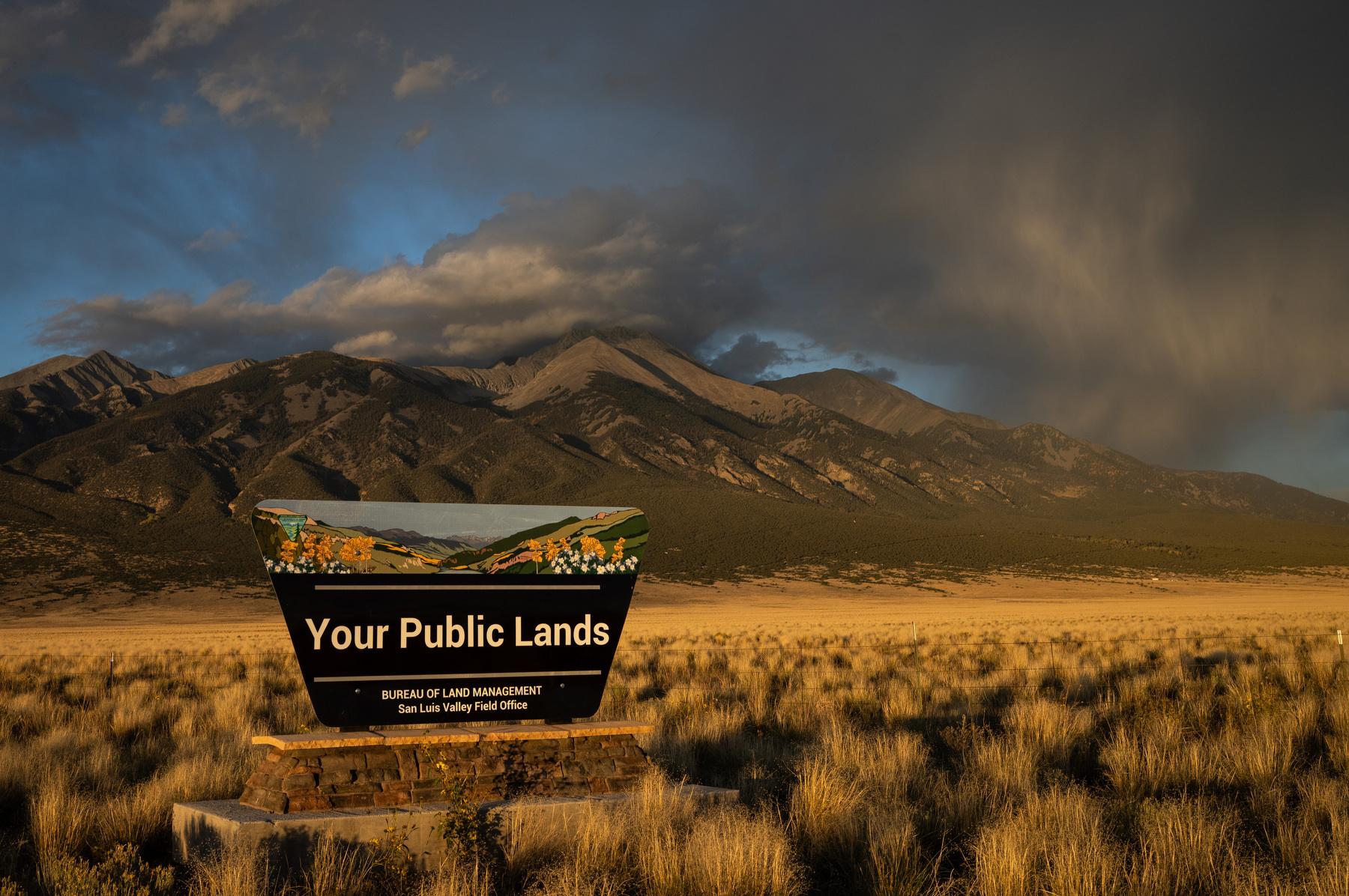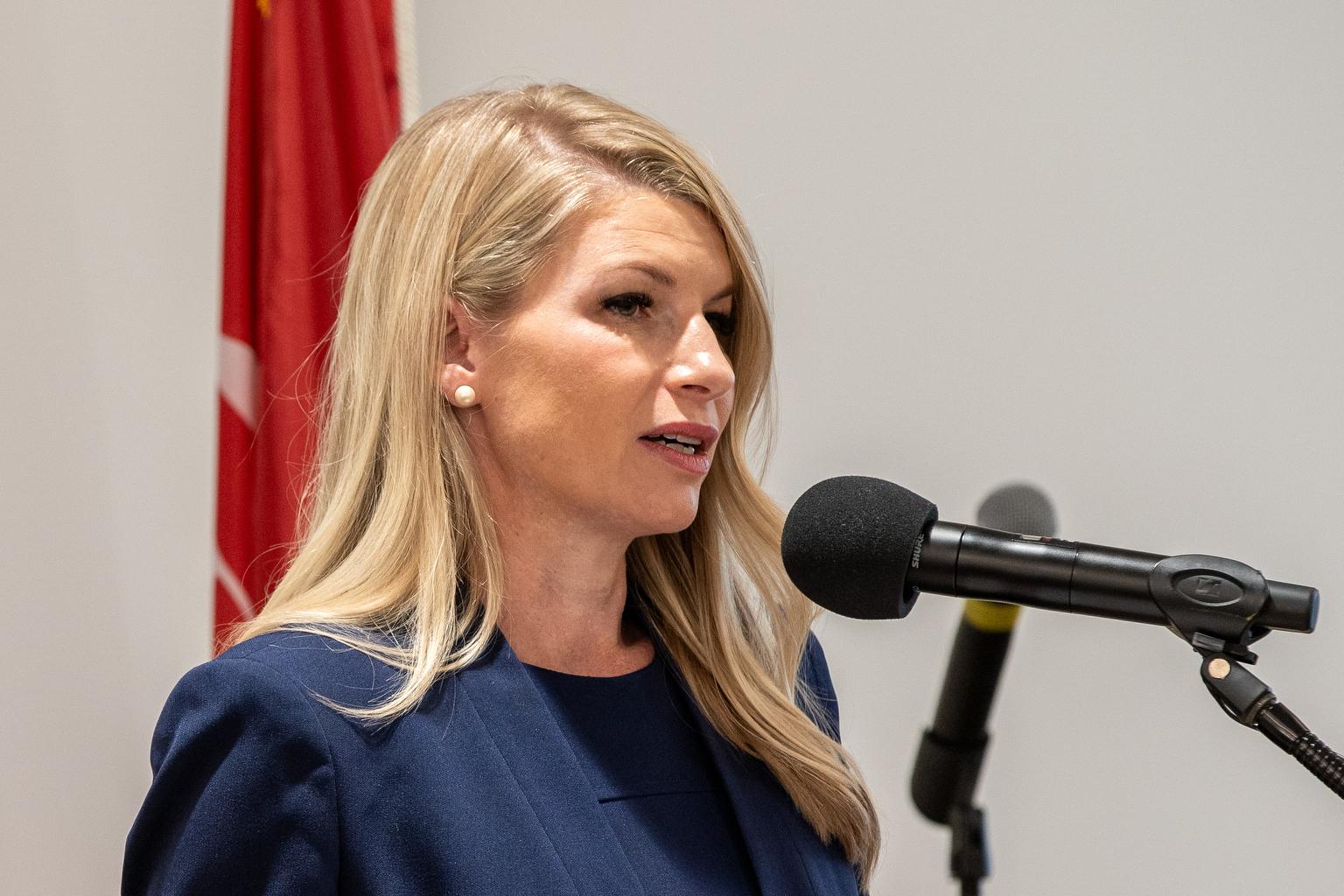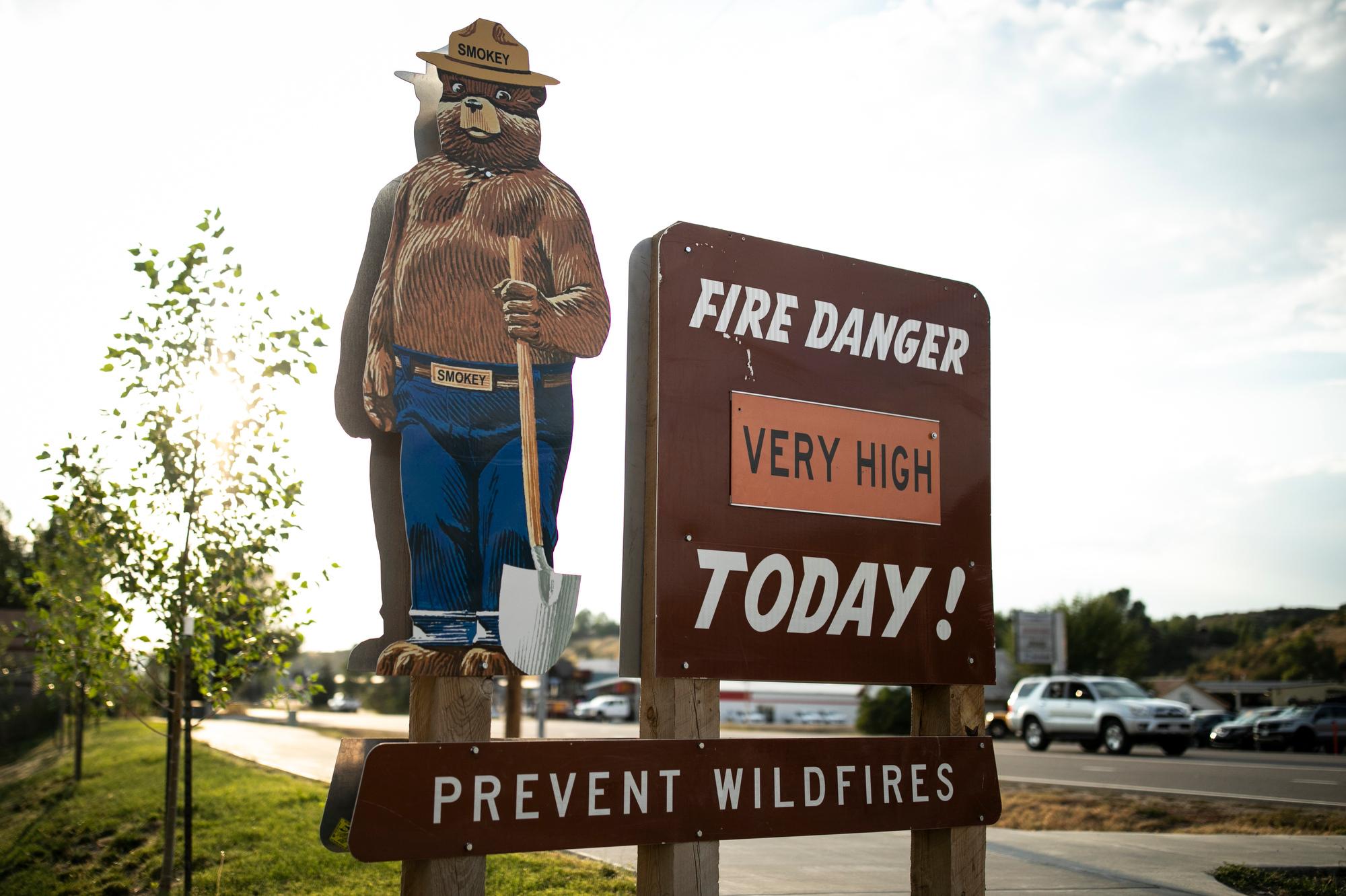
Updated Jan. 6 with transcript below -- Donald Trump's campaign promises to boost the fossil fuel industries and reverse President Barack Obama's climate change initiatives have big potential impacts in Colorado. Republican leaders at the state Capitol here have formed a special bipartisan committee to deal with the fallout
Trump has said he'll work to revive the struggling coal industry, including Colorado companies that have been hard-hit by the move to cleaner burning fuels. Trump backs the proposal to build Jordan Cove, a state-of-the-art shipping facility for another Colorado product, natural gas. And he wants to take the United States out of the Paris climate accords.
Supporters say those moves will save American jobs and boost the nation's energy independence. Opponents say they will move the world closer to the brink of irreversible climate change.
Colorado Matters host Ryan Warner spoke with the chairman of the select committee, State Sen. Ray Scott of Grand Junction, and with a Democratic member, Sen. Matt Jones of Louisville. Click on the audio link above to hear the conversation. The transcript is below.
Ryan Warner: This is Colorado Matters from CPR News, I'm Ryan Warner. If President-elect Donald Trump's campaign promises are fulfilled, the nation's and Colorado's energy and environmental policies are in for an overhaul. Look for a push to revive the coal industry; to increase drilling and exports of natural gas; and perhaps for a shift in how public lands are managed. At the Colorado Legislature, Senate Republicans have created a special committee to respond to those possible changes. And just before a session starts, I'm joined by its Chairman, Republican Ray Scott of Grand Junction and by a Democratic member, Senator Matt Jones of Louisville. Gentlemen, welcome to the program. Senator Ray Scott: Thanks for having me. RW: Senator Scott, in your ideal world, how does Colorado's energy picture change under the Trump administration? RS: I guess you know it goes back to that old saying, we don't know what we don't know. At this point we haven't seen any new policies rolled out. I think it does tell us quite a bit about some of the Cabinet picks that he's come up with as to what direction we're going to be going. I do look for a more vibrant energy portfolio in Colorado, and as you said in your opening remarks, yes we will probably see more drilling activity in Colorado as the markets change and the policies change. RW: Interesting that you describe what you envision under the Trump administration as vibrance. There are any number of people who might point to what's going on with solar and wind and say there's a lot of vibrancy in new energy. What do you mean by vibrant? Put a finer point on that for me. RS: I guess what I should have said is a statewide effort versus more of a Front Range centric drilling activity that's happening now. What we're seeing now is more of the Denver, they call it the DJ Basin and which runs kind of from Brighton all the up towards the Greeley area to the Wyoming border is pretty much where most of the activity is taking place today with the oil drilling on private lands. If you go west of the Continental Divide and you start to getting into more public lands you'll see less and less and eve down to zero in some areas as far as any activity is concerned. What I'm specifically mentioning I guess would be anything west of Continental Divide at this point. RW: In that regard, more fossil fuel exploration I think I hear you saying. RS: Correct. RW: You outlined some of your ideas for this new Select Committee in a recent op-ed for the Denver Post. One sentence in particular caught my eye. You wrote that, "Democrats throw working class people under the bus when the party goes to war against 'warming'." You used quotation marks around warming, why? RS: I think that's primary because of the global warming conversation that we always have. That seems to be a fallback position for the Democratic side is that we have a global warming issue and that that's what we need to address. RW: What do you think is the issue that needs to be addressed above climate change? RS: Oh, wow. We have a tremendous amount of issues. We could spend probably two hours on the subject today but we can't do that. When we start talking about where does funding come from for hundreds of programs in the state of Colorado; when you talk about job development and 44 counties that are considered distressed counties right now. It's kind of a whole list, laundry list of areas that we needed to take a look at on the issues. RW: Let me get you on the record. Do you believe that climate change is at least in part human caused? RS: In part I would say yes. RW: In part? All right. That is to say you trust those climate scientists, the vast majority of whom say that people are a real contributor to climate change? RS: I think that's just natural. I don't think we have any choice but to accept that. The second part of that would be nature itself. The volcanic activity that takes place, all the other things that take place around the world, [unclear], I mean you can go under the weeds. It's a combination of natural and human, let's put it that way. RW: Let's bring in the Democratic voice on this new select committee. It's on energy and environment so Senator Jones, what's your response to what you hear from your fellow senator about the direction, one I suppose of the Trump administration and potentially this new committee? Senator Matt Jones: Well I look forward to the conversation on the committee. I want to be really clear on something though. I know we're hearing we're going to have this stuff come down from DC and tell us what to do but if you look at the election results, the President-elect lost by 3% nationwide, or almost 3%, lost decisively in Colorado by 5%. I saw a poll of Trump voters who a majority say that we should continue on the path that the federal government set on clean energy and so there is no mandate. So I'm going to rely on what we've relied on since 2004 when the voters told us to increase our number of renewables in our energy supply, wind and solar. Ninety percent of the people in Colorado say they live in the West because of clean air, clean water, and the environment. It's a Colorado way of life and so that's what I'll be listening to, what Coloradans want. I guess to the second point, climate change is happening. We can't ignore the strange and increasingly severe weather we have. We have a moral obligation to our children to protect them and what it means to prepare for and tackle climate change. In my previous job a small part of it was to do wildland firefighting and I was up on the Four Mile Fire. I drove by my friend's house burnt to the ground, who was out fighting the fire. We could not believe that a 170 houses burned down at a time. But in three short years the High Park fire burnt 280, Waldo Canyon burnt 480. Black Forest burnt 550, those are human beings trying to recover their lives. People lost their lives in those fires. Twelve of the warmest years have come in the last fifteen years on our planet. We have a real issue to address. Unfortunately, some of the oil companies have been using their big profits to rig the system and create doubt about climate change and that humans are the major factor in that. But we have a good solution and we've been on this path. A path we can invest in clean energy which means investing in our own communities and taking charge or our energy. RW: Senator Scott, is that a path you agree with? Is it one that you would change dramatically or simply complement with more fossil fuel exploration in places where it's not currently happening? RS: Well I think number one, when we talk about mandates the problem is from the federal level, we do have mandates in place that are mandating what we do and what we don't do. How does that change when those mandates, if they go away or they start to diminish or however you want to look at that, how does that change what we're going to do? RW: Do I hear you referring, if not by name to the Clean Power Plan perhaps and to the Paris Climate agreement? RS: Yeah, that would be two examples of course. Then of course we have the CAFE standards on the automobile industry. We have a lot of different mandates that are being forced out to the states from the federal government. If, for an example, those mandates are rolled back or cut back if you will, however you want to look at it, how does that change what we can do in the state of Colorado or any other state for that matter, regardless of what we may believe. Industry will respond to that, whether it be any of the industries, will respond in some fashion or form. If in fact they don't have a mandate that means that they may not be able to afford to do the things they want to do so what impact is that going to have? Those are the kinds of things we're going to have to flush out in this committee, is kind of separate fact from fiction as far as what's going on. RW: Do you hope that the administration puts the Clean Power Plan in the wastebasket? RS: Yes I do, I absolutely do. I think it's time that we take a new look at this and one real specific reason for that is that we are trying to mandate to the world basically as to, when you talk about the Paris Accord for example. We can't do that, we can't mandate to the rest of the world what they're going to do. Yes, they can sign something at a wonderful round table with a cocktail but does that mean they're really going to do anything? We can only control what we can control which is where we are today. RW: China has signed the Climate Paris deal for instance. That's a major nation and one that is wrestling as well with climate change. Would you want the United States to stay a signatory to the climate deal? RS: Again, I don't know that those deals per se really have that much of an impact. When you look at the Chinese energy consumption usage or what they use for energy, it's very clear that the majority of that is coal. Are they going to change because they signed an agreement because most of the coal they bring in, they actually use for manufacturing steel, are they really going to change that. They're opening a coal-powered power-plant every nine days in China. Are they going to change and stop doing that? Do they have the natural resources to go to more natural gas? Do they have the ability to go to more renewable standards? Those are all questions that I don't remember seeing in the Accord, but maybe it was there. I don't know. I think time and time again, we've seen these world agreements come forth, and then whoever wants to be involved stays involved. Whoever doesn't, they do what they want. RW: Senator Matt Jones and Democrat, on this new energy and environment select committee, what do you think of what you hear there? What would pulling out of the Clean Power Plan in your mind mean for Colorado? MJ: I think it's the wrong way to go. I think the nation should move ahead, but like I said earlier, Coloradans want us to clean up our energy supply, and they want us to do it aggressively. Now that wind and solar, the large scale solar-plants are cheaper, they're going to want it even more. I mean, when Excel went out to buy the cheapest energy they could buy in the last couple of years, they bought wind and solar. When Tri-State went out and bought the cheapest energy they could buy, they supply the rural electric utilities in the Colorado REA's, they bought wind and large-scale solar because it's cheaper. So we're going to have that going on. You know, the Chinese have the most wind of any nation in the world, and that's the kind of competition we have. We could make a really productive life for people in Colorado through this by putting wind turbines on farms so that they have a steady income, solar on people's roofs so they have the choice to do that, or have our schools use less energy and save the money and put it into classrooms. We should be making the most of this opportunity, and not going backwards. RW: Senator Scott, on that specific point of a renewable energy standard in Colorado. RS: Uh-huh. RW: So, voters passed the first one and the legislature has, in ensuing years, upped that renewable energy standard. That is, how much energy on the grid has to come from renewables. Would you roll back any of that? Do you think that it should stay where it is? Should it move forward? RS: No, let's be really clear about this, when we talk about Tri-State, when we talk about Excel, when we talk about all these companies that are doing what they're doing - number one, yes there are mandates in place to make them do that, and number two, the consumers are paying for it. It's not Excel. So, if you look at your energy bill every month and you see a little line at the bottom that says "renewables", you're playing for this. So your neighbor put solar panels on his roof, in part that money is coming from ... I can't remember the exact number, but there's like almost two million Excel customers in Colorado just by themselves. The rate-payers pay for what the power generation is. Nobody's doing any of this out of the goodness of their heart, let's put it that way. RW: Yeah, but fundamentally, do you believe that Colorado is headed in the right direction as it increases, as it has over the years, it's renewable energy standard? RS: You know, I think what we're doing is we're focusing on one section of energy. Right now, 70% of all the emissions in Denver come from automobiles. They don't come power plants. That's where the big problem is. It's not with how we're producing power, it's how do we produce transportation between point A and point B. I know my colleague, by the way, good morning, Matt. How are you doing? MJ: Morning Ray, how are you doing? RS: My colleague Matt is very much into the mass-transit, and all the things that the Denver/Boulder, the Front Range really needs, versus where I come from, which is a very rural area. RW: In Grand Junction. RS: Mass-transit is not an issue over there. But that's kind of the whole point, is we have to sit there and we have to look back at this whole picture and say ok, where are we going, we've got this huge increase in population that's hit, and I believe that they're all on I-25 when I come over here. That's going to continue. So if we were to look at a full energy portfolio, let's just use the argument that renewables is the best thing we can possibly do today. What are we going to do in the future? What do we do from this point into 2020, 2030, 2040? We need to start having those conversations, because our infrastructure - whether it's wind, solar, power plants, whatever it may be - they are wearing out. We have to start looking at "what does the future look like?" Is it more coal-generation? I don't know. Is it more natural gas generation? We have to have that conversation and flush those things out, so that the people in Colorado understand that we have a massively growing power-grid, BTU-grid if you will, for heating and cooling of homes, transportation-grid issues. Most of that pollution, if you want to call it pollution, is coming from automobiles. What are we doing about this mess? RW: You are listening to Colorado Matters. I'm Ryan Warner and we're speaking with two members of a new state senate select committee. It's on energy and environment. It connects very much with the changes likely coming down the pike under the Trump administration on the issue. It's GOP Chair Ray Scott is with us. He's from Grand Junction. We're also speaking with the Democratic member, Matt Jones. Senator Jones, briefly we heard Senator Scott mention coal there. Certainly Mr. Trump has talked a lot about bringing coal jobs back. There are questions about whether that's possible, given the market forces that may make coal not competitive. But what role do you think this committee might play in considering coal, and in considering the workers displaced, if it continues to decline? MJ: Well, certainly coal's part of our energy now. People who lose their jobs to that dislocation, we need to find programs to help them transition. But I also think we need to recognize what's going on with the clean energy as far as jobs too. I mean, there's a farmer, I have a quote here "the wind farms fill up the coffers of these small counties", this is a farmer on the Eastern plains, "that are always struggling financially. They provide a stable source of income for land-owners, income that's not susceptible to the vagaries of the worldwide commodities market." That's a farmer, but he's also former State Senator Greg Brophy, a Republican. They are doing better in the Eastern plains because of wind. There are 220 more small businesses because of that. The school district of Peetz, north of Sterling, has 54% more money in their budget, so kids can get an education, and they're really a cash-strapped district. So, we need to recognize all parts of this. We need to help anybody that's dislocated, but we also need to realize how many jobs this creates. On the Plains, it's 4,250 so far. RW: I will say, though, I believe coal is the majority of power-generation in the states, and there are challenges to scaling up renewables. Isn't that true, Senator Jones? MJ: Yes, absolutely. About 55% of the Excel mode is coal right now, and you need to scale up the renewables. But now that they're cheaper, you can do that. They're cheaper and cleaner. Cheaper and cleaner. People need to start realizing that. On your Excel bill - Ray mentioned that you can find your renewable in there - what you do not find in there is a pass-through cost for when coal goes up straight to you and me, the consumer for gas or coal. If that were obvious, people would realize it. Now, you will not get a pass-though cost from solar or wind. The energy's free. So you are very much more stable that way, as far as variability and knowing what you have. So there are real opportunities for us. We need to address climate, and we need to help people out with the economy around clean energy and energy-efficiency. RW: You've got a Republican soon to be in the White House, Republican control of the House and Senate there in Washington. Is you outlook a little too optimistic? We have about 40 seconds left here. MJ: I understand that, but in the State House, the Democrats still control the House. It's a one-vote difference in the Senate. I think we need to figure what Coloradans want, and they have told us at the polls and at polling, that they want us to clean up our energy supply. Now that it's cheaper, we should absolutely do that, to create opportunities for people. RW: Very quickly, Ray Scott of Grand Junction, will this committee vote on bills? Or do you see it as, not quite symbolic, but more philosophical? RS: Well, I want to clarify, one thing that Matt just said is- RW: Sure. RS: You know there's nothing free in this world. A lot of people like to use that term when it comes to solar, and wind, that's not free. There's nothing free out there. Secondly Ryan, if I told you today that the government was going to mandate that you could no longer be a broadcaster, you now need to be a coal-miner - I don't know that you're going to like that very well. So I think social engineering from that level is just not a good, healthy thing. Coal miners want to, they want to dig coal, they don’t want to be a computer operator. That's the livelihood that's been in the family for generations so I don’t, I take exception that idea that somebody would be just more than willing to go get a new job. Another thing I wanted to point out. RW: Yeah, we, I'm so sorry, we really have to wrap up, Senator Scott. So just briefly, will the committee vote on bills or is it something where a discussion happens and then votes happen in other committees? RS: The committee itself is going to be laid out more as an education committee. We can develop a bill yes, but it has to go back to the committee of reference, which will be the Ag and Natural Resource Committee. So we can come up with ideas. RW: Got it. I think you were right when you said we could probably talk about this for two hours. Gentlemen, thanks so much for being with us. You heard from Ray Scott, he's a Republican State Senator from Grand Junction and he will chair this new Senate Select Committee on energy and the environment. And Matt Jones, he's a Democrat from Louisville and he'll serve on the committee. This is Colorado Matters from CPR News. |









